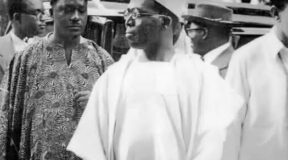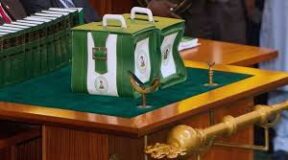As ICPC Probes 712 Government-Funded Projects
OpenLife Nigeria gatheres that the Independent Corrupt Practices and Other Related Offences Commission (ICPC) would begin probe of fraudulent procurement, others in 712 government projects in 20 Nigeria states as part of its Phase 5 of the Constituency and Executive Projects Tracking Exercise.
This was revealed by a statement signed by the Commission’s spokesperson, Mrs Azuka Ogugua on Sunday.
ICPC said that the 5th phase, involving 712 government-funded projects, will commence on the 8th of November, 2022 in 20 states cutting across the 6 geopolitical zones. The states are Kaduna, Jigawa, Sokoto, Katsina, Kwara, Niger, Kogi, Cross River, Delta, Rivers, Ogun, Ondo, Osun, Oyo, Anambra, Enugu, Abia, Borno, Bauchi, and Gombe States.
The anti Corruption agency noted that s with other tracking exercises carried out by ICPC since the kick-off in 2019, the objective of the Phase 5 is to investigate fraudulent procurement practices in the award of contracts for the selected projects across the country. It aims to ensure that all government funded projects are executed fully to their specifications and to make recoveries where the project costs are inflated by contractors or are poorly executed.
The Commission, had in the 4th Phase of the exercise, successfully tracked 538 projects across 9 focal areas of Health, Education, Power, Water Resources, Works, Housing, Agriculture, Transport, and Environment.
The exercise was conducted in 19 states across the 6 geopolitical zones and the FCT including Lagos, Ogun, Ekiti, Enugu, Ebonyi, Akwa-Ibom, Rivers, Edo, Delta, Nasarawa, Plateau, Benue, Adamawa, Yobe, Taraba, Borno and FCT.
Some of the findings from the Phase 4 exercise include discovery of N7.1 billion worth of padded projects, some contractors who had abandoned project sites being compelled to return to different sites to complete N10.9 billion naira worth of projects, while N6.8 billion naira worth of recoveries (cash and assets) have been made so far.
Also, 109 out of the 543 selected projects in Phase 4, amounting to N1,176,867,800 were found to have been inserted, which effectively turned them into Zonal Intervention Projects. Intelligence revealed that the insertions were done by both legislators and some members of the Executive arm of the government in the budget-making process.
Though Phase 4 was intended to focus solely on Executive projects, it however became another exercise in Constituency Projects tracking because of the quantum of budget padding found amongst the selected projects.
Phase 5 of the exercise will be carried out by ICPC in collaboration with relevant stakeholders such as Budget Office of the Federation, Office of the Accountant General of the Federation, Office of the Auditor-General of the Federation, Bureau of Public Procurement, Nigerian Institute of Quantity Surveyors, the Media and Civil Society Organizations that constitute the steering committee.

Meanwhile, Governor Abdullahi Umar Ganduje of Kano State, has described as a cooked lies and Mischievous calculations against his integrity, reports that he was amongst the three Governors accused by the EFCC of stashing Cash in their homes.
The Government condemned in strongest terms insinuation by an online publication, Sahara Reporters that Governor Abdullahi Umar Ganduje is one the three governors fingered by the Economic and Financial Crimes Commission (EFCC) as having stashed away funds in their houses.
A statement by the commissioner for information, Malam Muhammad Garba indicated that while the anti-graft agency did not mention the identity of the governors, Sahara Reporters went ahead to make such false reference.
He said the report which lacks texture for an investigative story was either the imagination of the publishers or a deliberate attempt to tarnish the image of the governor.
Malam Garba pointed out that Governor Ganduje has not acquired the billions of naira stashed away funds involved that could be used to engage in the dreary process of table payment of workers’ salary in this era of e-banking services.
The commissioner added that Kano has been one of the few states in the federation that consistently pays its workers’ salary, even as at the time of the release of the false report by Sahara Reporters, posting of the October salary had commenced.
He therefore called for the retraction of the story and an unreserved apology from the publishers, failure of which the state government would not hesitate to take legal action.







